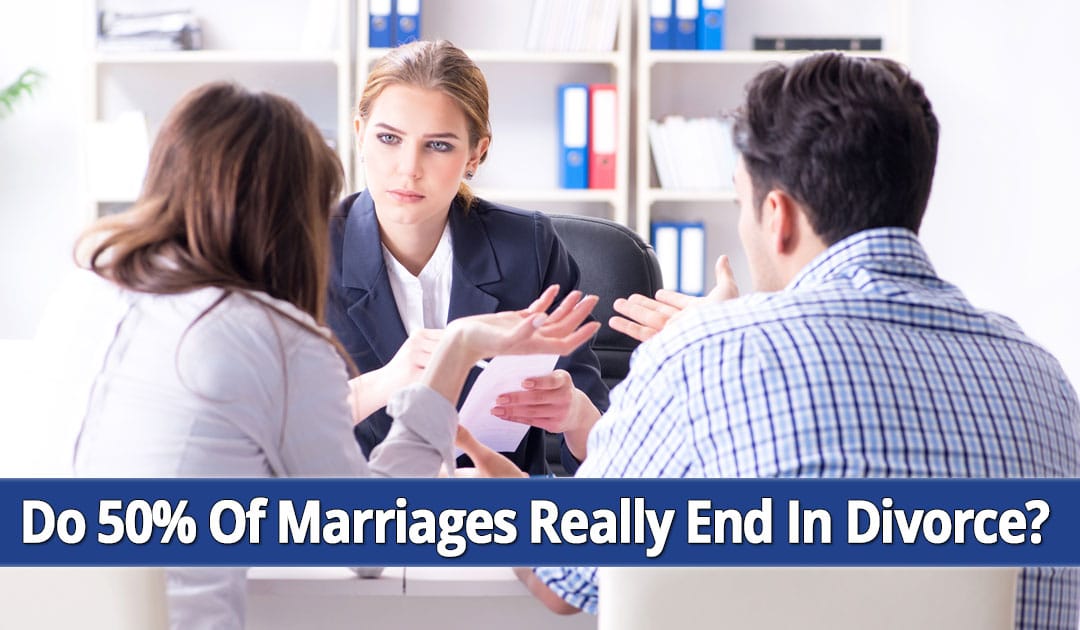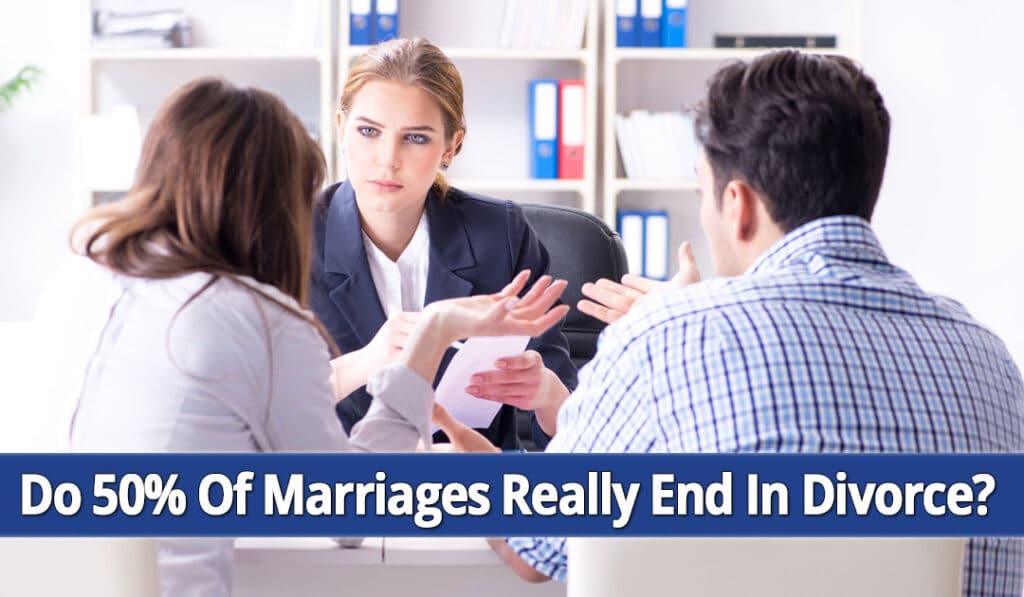Do 50% Of Long Island, NY Marriages Really End In Divorce?

It’s no secret that divorce rates are high. In the United States, it’s said that about 50% of marriages end in divorce. But what many people don’t realize is that this isn’t necessarily accurate, and the true divorce rate is actually lower. There are several factors that play into the divorce rate, including culture, education, gender, religion, and age.
Below, we take a more detailed look at divorce rates based on demographic, what contributes to divorces on Long Island, NY, and how you can get legal support if you’re considering or going through a divorce.
The True Divorce Rate
Half of all marriages don’t end in divorce, contrary to common belief. This figure was created in the 1970s by researchers who believed that if 2% of couples continued to get divorced each year, the rate would eventually reach 50% and beyond.
What this figure fails to take into account, however, is things like changes in the public perception of divorce or the introduction of no-fault divorces. It also doesn’t factor in race, education, income, social status, and other things that impact how groups of people approach divorce.
The Washington Post reports how these issues have a major effect on divorce rates, suggesting that:
- 38% of high school-educated people get divorced
- Only 28% of college-educated people get divorced
- Divorce rates for Black and Indigenous people are higher at 42% and 45%
- Hispanic people have a lower rate of divorce at 29%
- Asian people are the least likely to divorce, with a rate of just 17%
How Do Demographics Affect Divorces?
The cultural norms of a society clearly play a significant role in the divorce rate. What people believe about marriage and divorce, and if these things are rooted in their religion. For example, in countries where divorce is highly stigmatized, couples may be less likely to seek one, even if they are unhappy in their marriage. In other cultures, divorce may be more common, and couples may be more likely to view it as a viable option when they are facing marital problems.
In the figures above, you can see that college-educated people tend to get divorced at a lower rate than those who have lower levels of education. This is likely due to several factors, including the fact that educated couples tend to marry later in life and may have better communication skills and therefore may be more likely to be able to verbally resolve conflicts in their marriage. They may also be better equipped to deal with the financial challenges that often lead to marital problems.
Gender roles and age can also play a role in divorce rates. In societies where women have fewer rights and opportunities, they may be more likely to stay in abusive or unhappy marriages because they cannot leave or support themselves financially. Gender norms can further impact the way couples communicate and resolve conflict, with men being more likely to resort to violence and women being more likely to internalize marital problems.
Younger couples are less likely to have shared life experiences and may not have fully developed the communication and problem-solving skills needed to deal with marital problems. Young people may also be more impulsive and less likely to consider the long-term implications of divorce before deciding to end their marriage.
Should You Get Divorced?
If you’re considering ending your marriage, talking to an experienced divorce and family law attorney can help you understand the legal process and the potential long-term effects of a divorce on you, your spouse, and any children that may be involved.
If you have children, then you should also consider their best interests and seek professional advice from a therapist or other qualified professional to make sure that your next move is as beneficial for your family as possible. How you approach and communicate your impending divorce with your children is critical for how it may impact them emotionally and developmentally.
At Hornberger Verbitsky, P.C., we understand the nuance of divorce and can help you navigate the challenges that lie ahead, no matter how difficult. We have the experience needed to represent you during divorce settlement negotiations, or we can zealously advocate for you in court should your divorce need to be litigated.
To learn more about your legal options or to take the first step to starting a new life, contact our office at 631-923-1910 or fill in the short form on this page. We serve clients throughout all of Long Island and nearby areas in New York.
GET YOUR FREE CONSULTATION TODAY
Call 631-923-1910 or fill in the form below
Get your complimentary consultation and case evaluation with our experienced attorneys today.
Your attorney will describe the many options available and determine together which is the right solution for you. By the end of this conversation, we’ll all understand how we can best help you to move forward.
No Cost or Obligation
There is no cost or obligation for this initial consultation. It is simply an opportunity for us to get to know each other, answer your questions and learn if Hornberger Verbitsky, P.C. is right the right law firm for you. Give us a call at 631-923-1910 or fill in the short form below for your free consultation and case evaluation.
All Fields Are Required
About the Author
Robert E. Hornberger, Esq., Founding Partner, Hornberger Verbitsky, P.C.
- Over 20 years practicing matrimonial law
- Over 1,000 cases successfully resolved
- Founder and Partner of Hornberger Verbitsky, P.C.
- Experienced and compassionate Long Island Divorce Attorney, Family Law Attorney, and Divorce Mediator
- Licensed to practice law in the State of New York
- New York State Bar Association member
- Nassau County Bar Association member
- Suffolk County Bar Association member
- “Super Lawyer” Metro Rising Star
- Nominated Best of Long Island Divorce Attorney four consecutive years
- Alternative Dispute Resolution Committee Contributor
- Collaborative Law Association of New York – Former Director
- Martindale Hubbell Distinguished Designation
- America’s Most Honored Professionals – Top 5%
- Lead Counsel Rated – Divorce Law
- American Institute of Family Law Attorneys 10 Best
- International Academy of Collaborative Professionals
- Graduate of Hofstra University School of Law
- Double Bachelor’s degrees in Philosophy, Politics & Law and History from SUNY Binghamton University
